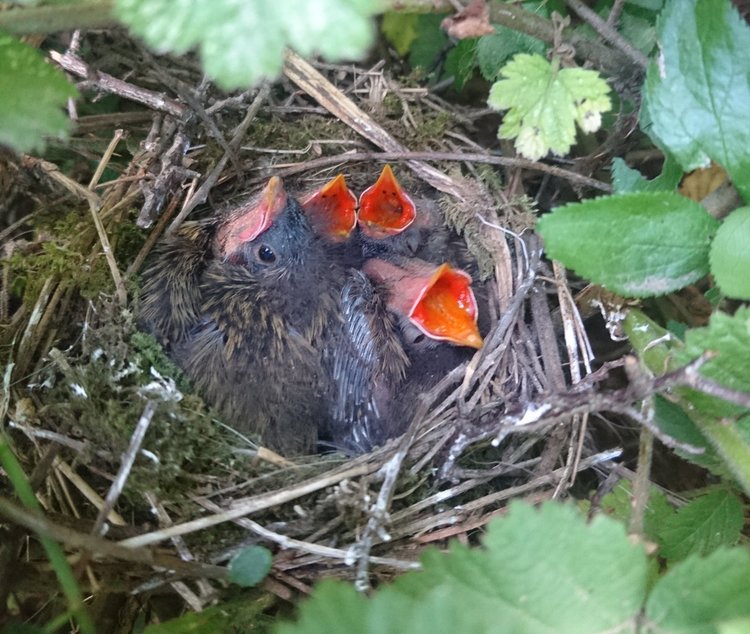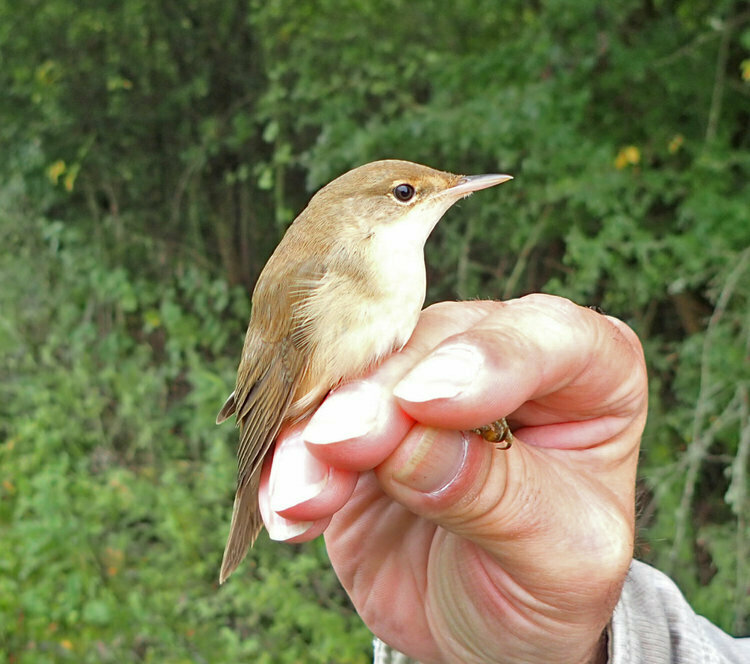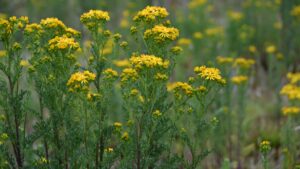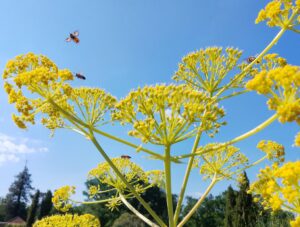
Podcast Episode 36 – The Dove From Above
PODCAST EPISODE 36: The Dove From Above Join us on a beautiful June evening for episode 36 of the Knepp Wildland Podcast. We’re joined by
Home / A Bird in the Hand…
Over one million birds were ringed by British Trust for Ornithology (BTO) volunteers in Britain and Ireland in 2016. Ringing helps us understand more about birds: about why populations are changing, where different species spend their breeding seasons and where they spend their winters, when they migrate and how long they live.
Here at Knepp Wildland we’ve been ringing since 2015; as well as contributing to BTO’s important research it’s also a way of learning which species are utilising the scrub. In the autumn/winter we catch Redwing that roost in the scrub and feed up on the berries, in the spring we concentrate on nest finding so we can monitor the success rates of different species, and also ring chicks in the nest such as these Dunnocks:

Then come late summer/autumn we’re catching birds in mist nets – picking up birds on migration that are feeding up on the fruits and the insects in the scrub – lots of Blackcaps, Whitethroats, Chiffchaffs, Willow Warblers and Reed Warblers.
The other day we received an email to say that a bird ringed at Knepp on 5th August had been caught somewhere else. It was a juvenile Reed Warbler:

Amazingly, just 16 days after being ringed at Knepp it was caught in Noain, Navarra, Spain…918km away! The Google map below shows the distance between Knepp and Noain:

We don’t know when it started its migration but it’s just fascinating that a bird weighing 11.5g (when we ringed it) made this long journey south within a couple of weeks of being at Knepp. Looking back through the BTO’s ringing recoveries I spotted a Reed Warbler that was also ringed in Sussex on 08/09/2016 and then recovered in Noain just 3 days later!
Huge thanks go to Tony Davis, our bird ringing trainer, for all his mentoring and support.
by Penny Green, Knepp Ecologist

PODCAST EPISODE 36: The Dove From Above Join us on a beautiful June evening for episode 36 of the Knepp Wildland Podcast. We’re joined by

Matt Phelps | Lead Ecologist It’s mid-June and the countryside is quietly gearing up for its summer crescendo. You might have noticed it already— what

Moy Fierheller | Deputy Head Gardener Visit Knepp’s rewilded Walled Garden The fine, fairy-tale spring continues and the Met Office reports it’s the sunniest in
Knepp Wildland Safaris, our gardens and campsite are all about the quiet and patient observation of nature.
Some of the species we are likely to encounter are shy or can be frightened by loud noises or sudden movements. Our campsite with open-air fire-pits, wood-burning stoves and an on-site pond is unsuitable for small children.
For this reason, our safaris, garden visits, holiday cottages and campsite are suitable only for children of 12 and over.